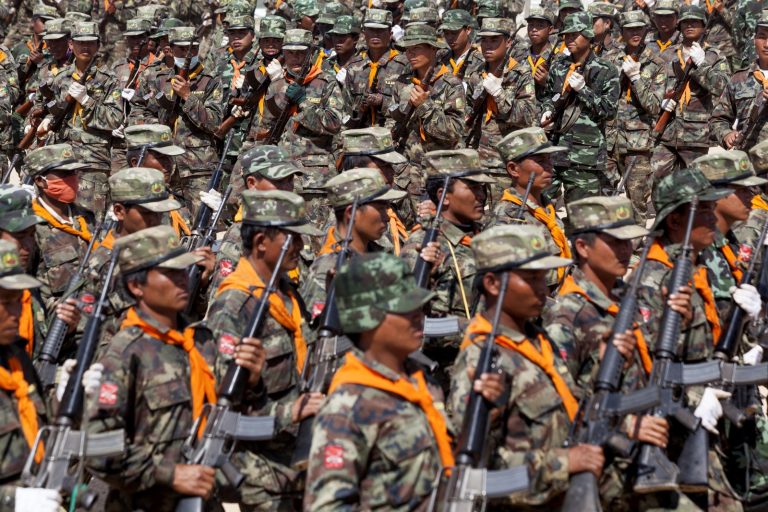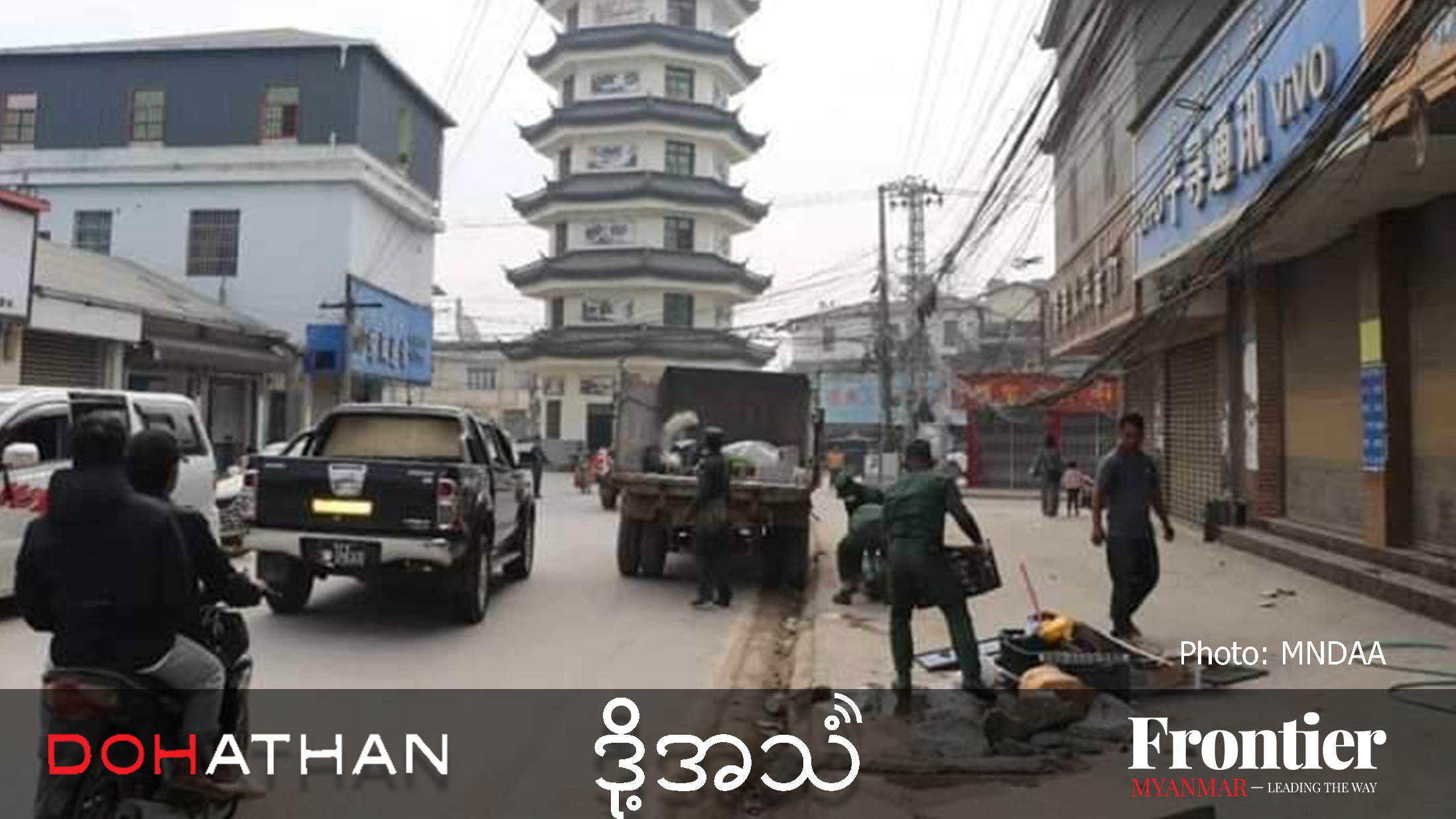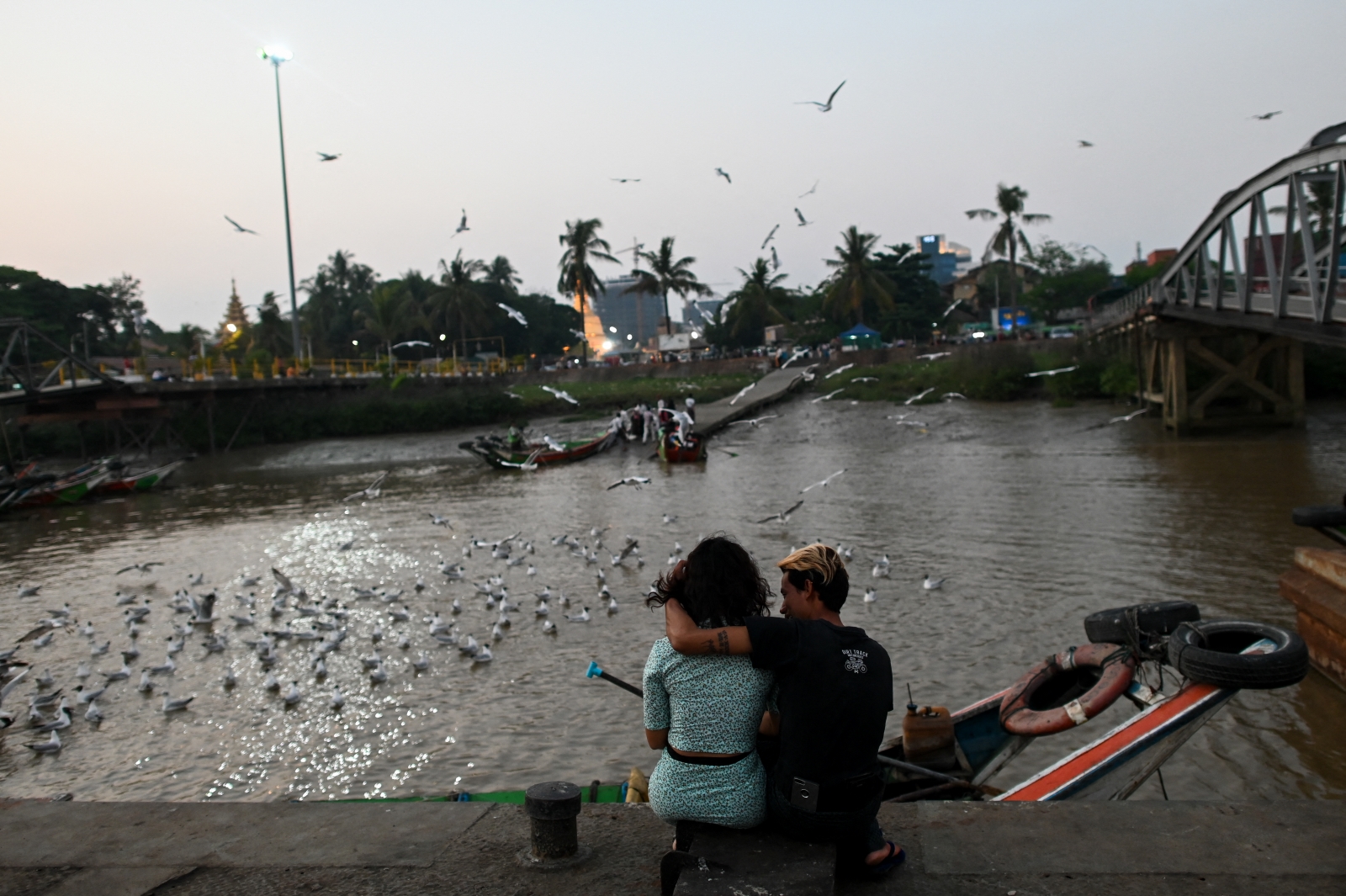By AFP
YANGON — At least 19 people have been killed in clashes between Myanmar’s military and an ethnic armed group on Saturday in northern Shan State, Myanmar army and local sources told AFP, the most deadly flare-up in recent years as fighting in the borderlands intensifies.
Rights defenders say clashes in northern Myanmar near the China border have ramped up since January as the international community focuses on the Rohingya crisis in the west of the country.
Saturday’s violence was between the military and the Ta’ang National Liberation Army, or TNLA, one of several insurgent groups fighting for more autonomy in the north.
“Nineteen [people] were killed in fighting,” the Myanmar military source said, adding that two dozen had been injured.
Support more independent journalism like this. Sign up to be a Frontier member.
U Thaung Tun, a local NGO leader who helped carry the injured to the hospital, said the dead included one police officer, one rebel fighter, four members of a state-backed militia, and two women civilians.
Pictures of burned out vehicles and armed men running for cover spread quickly on social media.
TNLA spokesman Major Mai Aik Kyaw told AFP that the group attacked joint military and militia posts in the Shan state town of Muse and on a road to Lashio.
“We fight because of thorough fighting in our region and the serious offensive in Kachin State,” he said, referring to fresh confrontations in Myanmar’s northernmost state between the army and the TNLA-aligned Kachin Independence Army.
Upwards of 90,000 people reside in IDP camps in Kachin and Shan states since a ceasefire between the powerful Kachin Independence Army and the military broke down in 2011.
Those fleeing violence have sheltered in tents and even churches in Kachin, which is mainly Christian, as rights groups accuse the military of blocking aid.
Civilian leader Daw Aung San Suu Kyi said ending Myanmar’s long-running conflicts was her main priority after she took power in 2016, but she shares power with the military that fought the insurgencies for decades.
Aung San Suu Kyi managed to bring two ethnic groups into a ceasefire accord in February, adding to eight others who had inked the deal before she took office.







